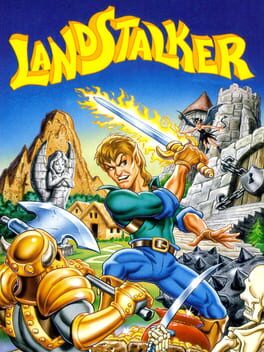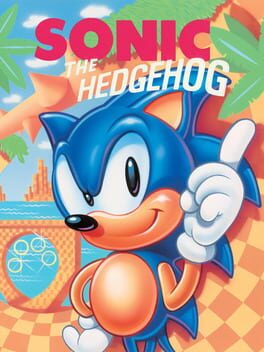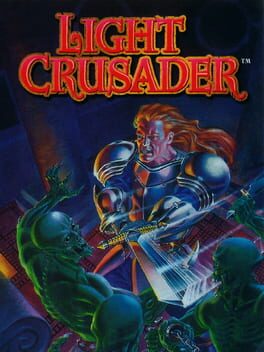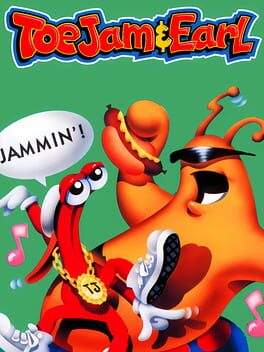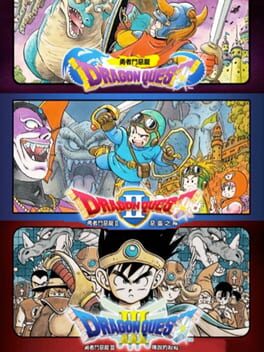GhaleonEB
BACKER
This was the first isometric action game I'd played back when it came out. It was a brilliantly designed game then, and revisiting it with a new perspective only made it shine brighter.
Landstalker is an isometric action-RPG that strikes a perfect balance of exploration, action, platforming and puzzle solving, with a great story and set of characters. It's not afraid to be quite difficult at times, and to use its isometric viewpoint to up the challenge: hidden paths, difficulty aligning platforms, many a secret right at your feet if only you could see them. It's also unafraid to punish missteps with backtracking, sending you past a missed platform an onto the level below for the hajillionth time. But a zippy pace mean another shot at that jump is just a few moments away, and the tight controls with full air control are never at fault. Patience and perseverance are required, and this type of challenge may frustrate some.
The only notable flaw is in the sound: I do wish the enemies had at least a few more sound effects for getting hurt and defeated; the same few over and over is unfortunate. But repetitive yelps aside, the other effects are solid and the OST is very strong and catchy.
Landstalker's dungeons are a good illustration of how to leverage a handful of tools in an array of creative ways. Nigel can jump, swing his sword, carry objects and chuck them across a room. The steadily increasing complexity and creativity in how you have to deploy these abilities ramps up throughout the game in ways that constantly surprise and challenge, in dungeons that are sprawling and varied.
This is a masterclass of an isometric action-RPG.
Played on Genesis Mini.
Landstalker is an isometric action-RPG that strikes a perfect balance of exploration, action, platforming and puzzle solving, with a great story and set of characters. It's not afraid to be quite difficult at times, and to use its isometric viewpoint to up the challenge: hidden paths, difficulty aligning platforms, many a secret right at your feet if only you could see them. It's also unafraid to punish missteps with backtracking, sending you past a missed platform an onto the level below for the hajillionth time. But a zippy pace mean another shot at that jump is just a few moments away, and the tight controls with full air control are never at fault. Patience and perseverance are required, and this type of challenge may frustrate some.
The only notable flaw is in the sound: I do wish the enemies had at least a few more sound effects for getting hurt and defeated; the same few over and over is unfortunate. But repetitive yelps aside, the other effects are solid and the OST is very strong and catchy.
Landstalker's dungeons are a good illustration of how to leverage a handful of tools in an array of creative ways. Nigel can jump, swing his sword, carry objects and chuck them across a room. The steadily increasing complexity and creativity in how you have to deploy these abilities ramps up throughout the game in ways that constantly surprise and challenge, in dungeons that are sprawling and varied.
This is a masterclass of an isometric action-RPG.
Played on Genesis Mini.
1991
I'd not played past the first two levels in a good 20+ years, so this was a treat to revisit. I was reminded how creative and kind of bonkers the game is, but also how the premise is a bait and switch.
For a character all about going fast, you gotta be methodical and careful after Green Hill Zone, and the final stage I basically inched through. Under the joyfully colorful veneer is a pretty difficult game, and an often mean one. Drowning, falling off the maps, enemies placed right in the middle of speedy stretches. Pointy, smashy things abound.
Not enough praise can be heaped on the surreal bonus stages (I maintain some very good drugs were involved in their conception) , the classic OST or the still superb graphics. Still, there's some clunkiness to the physics and some uneven pacing that took this down a few notches.
Even detached from the impact upon release and subsequent legacy, taken on its own, Sonic stands out as a superbly imaginative, challenging and fun game.
Replayed on Genesis Mini.
For a character all about going fast, you gotta be methodical and careful after Green Hill Zone, and the final stage I basically inched through. Under the joyfully colorful veneer is a pretty difficult game, and an often mean one. Drowning, falling off the maps, enemies placed right in the middle of speedy stretches. Pointy, smashy things abound.
Not enough praise can be heaped on the surreal bonus stages (I maintain some very good drugs were involved in their conception) , the classic OST or the still superb graphics. Still, there's some clunkiness to the physics and some uneven pacing that took this down a few notches.
Even detached from the impact upon release and subsequent legacy, taken on its own, Sonic stands out as a superbly imaginative, challenging and fun game.
Replayed on Genesis Mini.
1995
I wanted to like this more than I did. Light Crusader is basically a focused dungeon crawl, a game in which we hack, explore and puzzle our way through one giant labyrinth. I love those kind of games. But I think the usually reliable Treasure erred in the "realistic" art style that comes across as generic fantasy, and the combat is rather clumsy and unsatisfying. Some puzzles are too opaque, some bosses too simple. But for the most part, "serviceable" is how I'd describe this.
There are some good ideas in here, and I had a good time throughout, but the game doesn't really do anything to distinguish itself beyond the premise.
Played on Genesis Mini.
There are some good ideas in here, and I had a good time throughout, but the game doesn't really do anything to distinguish itself beyond the premise.
Played on Genesis Mini.
1991
I had forgotten just how surrealistic TJ&E is. The humans are all parodies of we earthlings - and often quite barbed parodies at that - but the world design is rather trippy with the floating landmasses and paths. Less an action game than an exploration-heavy roguelike, particularly in random world mode, this one is all about vibing to the great soundtrack, exploring at a careful, deliberate pace and taking measured risks, whether opening presents or choosing to head up to the next level feeling unprepared. Surprisingly difficult, it was very fun to revisit a childhood favorite and find the game design and style both hold up well. A weird game executed beautifully.
Played on Genesis Mini console, in single-player fixed world mode.
Played on Genesis Mini console, in single-player fixed world mode.
My first Dragon Quest games. Enjoyed seeing the roots of a the series, and I loved the turn-based combat and heavy exploration. The games offered a consistent but usually fair challenge and a high level of discovery. Learning how the games interconnected was neat.
These ports are not very good, a smooshed up mix of pixel art for backgrounds and character art from a discount mobile FTP game, so probably not the idea introduction to the series. But the core games were there, and they are great.
These ports are not very good, a smooshed up mix of pixel art for backgrounds and character art from a discount mobile FTP game, so probably not the idea introduction to the series. But the core games were there, and they are great.
